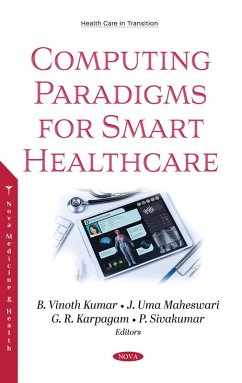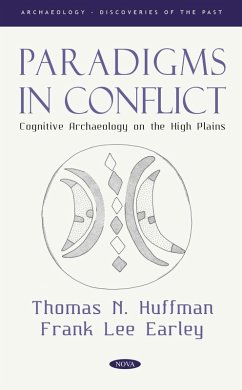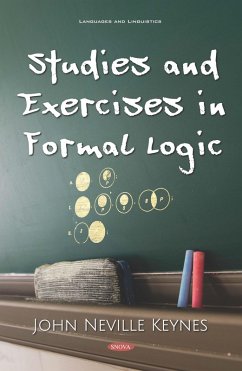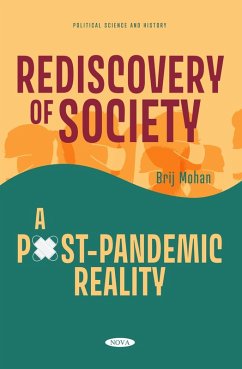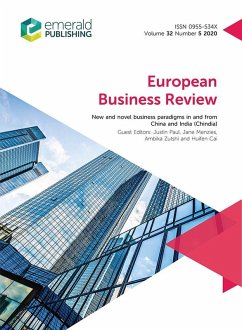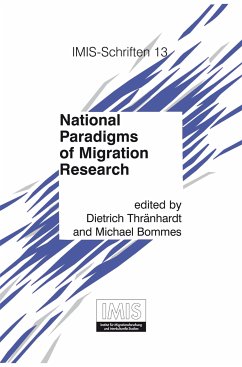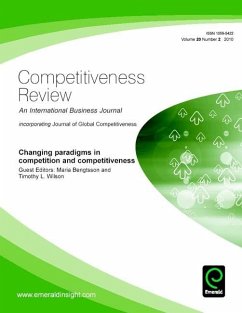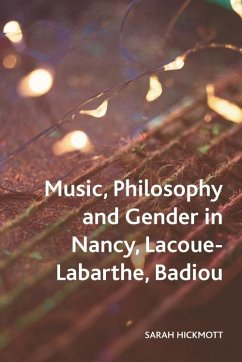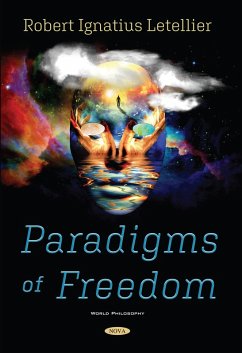
Paradigms of Freedom (eBook, PDF)

PAYBACK Punkte
106 °P sammeln!
The integrity of the human being made in the image and likeness of God (Genesis 1:26) has been a challenge confronting not just the theologian, but great rulers, politicians, reformers, scientists, poets, artists, composers and novelists over centuries. The Orthodox Tradition might note that our human condition in time and space is shaped and challenged by this journey from likeness to image. Biblically we journey to see the face of God. Less theologically, the human condition is shaped by the tensions and contradictions as we journey to seek 'freedom'. Paradigms of Freedom explores, in the co...
The integrity of the human being made in the image and likeness of God (Genesis 1:26) has been a challenge confronting not just the theologian, but great rulers, politicians, reformers, scientists, poets, artists, composers and novelists over centuries. The Orthodox Tradition might note that our human condition in time and space is shaped and challenged by this journey from likeness to image. Biblically we journey to see the face of God. Less theologically, the human condition is shaped by the tensions and contradictions as we journey to seek 'freedom'. Paradigms of Freedom explores, in the context of the unfolding of modern history, how this challenge has been compounded and enriched by the people and institutions who have sought to find and promote the concept of freedom (and issues of personal liberty) in the face of contrary or oppressive circumstances and systems. Importantly, it will examine the contribution of the artist to various models of freedom, some of which may be identified as vectors of transcendence; when image becomes likeness. The nature of human society, the sense of social harmony and paternalistic control that characterized society for centuries, and especially the emergence of Western culture, began to crumble in the fourteenth century with the cataclysmic onslaught of the Black Death; the challenge to the monolithic power of the Church and the nature of feudalism; the growth of new philosophical and political theories; and overall crumbling of authority. In the fifteenth century new developments like the invention of printing; the standardization of modern languages; and the global expansion of exploration, mercantilism and colonization presented unprecedented horizons of growth and challenges to the place and meaning of humanity in the world. These challenges are embodied in the Renaissance and Reformation, where the very foundations of belief and knowledge were questioned in new processes of discovery in both the world and the cosmos. The nature of freedom to search, to question and to discover new things brought about political and intellectual developments in an ever-expanding series of movements and interrogations. Moved by the annals of the times, individuals have sought to understand and perpetuate the heroic struggles through their own creative power. This in turn can draw us to share in those lost or sorrowful times, and reflect on the sacrifice and vision of those who have been prepared to witness fearlessly to the indomitable spirit of mankind, and his slow but inexorable movement or journey into the light. This exposition will examine various types/paradigms that have proposed and embodied concepts of freedom. These have tried, and often succeeded, in serving as vectors of transcendence, meditating on and mediating human aspiration. Such reflective movements of mind and heart are embodied both contemporaneously and retrospectively in various historical movements, political gestures and artistic creativity that have provoked thoughts on human liberty: political actions, decrees, philosophy, books, pictorial art, novels, poetry, theatre, opera and film. Representatives and examples (in words and imagery) of all these modes are exemplified in the chapters that explore certain iconic movements and personalities in some of the key historical and social events of the past six centuries. The process is of necessity selective. Religious conflict, freedom of thought and denomination, the wars fought over faith and control of the land, the desire for liberty of choice, challenging new discoveries in science and geography, cosmology, colonialism and slavery, Enlightenment, revolution and the search for national identity and independence-these are all areas that have absorbed human thought, knowledge and aspiration, and resulted in inevitable artistic reflection. This is not a history but a consideration of mankind's search to be free, and how this striving is embodied in the poetry of liberation.
Dieser Download kann aus rechtlichen Gründen nur mit Rechnungsadresse in A, B, BG, CY, CZ, D, DK, EW, E, FIN, F, GR, HR, H, IRL, I, LT, L, LR, M, NL, PL, P, R, S, SLO, SK ausgeliefert werden.




